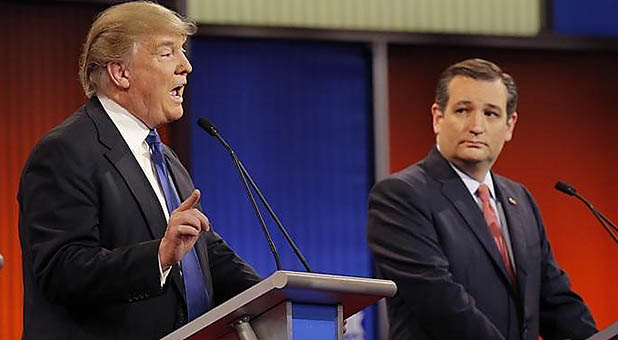Previewing the 4 States Up for Grabs on Tuesday
If ever a four-state primary day in which 150 delegates are at stake could be called the lull before the storm, this Tuesday would be it.
With Super Tuesday I and Super Saturday now in the rearview mirror, and Super Tuesday II and its winner-take-all stakes looming just seven days away, the campaigns have not forgotten about the March 8 contests. So, we shouldn’t, either.
Here’s a summary of each of the four events taking place Tuesday.
Hawaii
The Aloha State’s Republican caucus is technically closed, but anyone can register to vote as a Republican at the door—much like in Iowa—which makes it deceptively difficult to predict. Delegates are allocated proportionally at the district and statewide levels, and unlike the other states, Hawaii’s three leading officials are pledged proportionally, as well. Hawaii has 19 total delegates.
Idaho
The Gem State could be a major coup for Donald Trump, unless Ted Cruz and/or Marco Rubio build some late momentum there. Currently, Trump is the only candidate polling above 20 percent, a key cutoff for delegate allocation. If he exceeds 50 percent, or is the only candidate above 20 percent, he gets all of Idaho’s 32 delegates. If more than one receives more than 20 percent, they will be allocated proportionally among only those candidates who break 20 percent.
Michigan
The Great Lakes State is the crown jewel of the day with 59 total delegates available during its open primary. This could be a disaster for Marco Rubio, because he’s currently the only candidate not polling above the 15 percent threshold to receive delegates. If a candidate exceeds 50 percent of the popular vote, he will receive all of the delegates, otherwise they will be allocated proportionally among all of the candidates polling above 15 percent.
Mississippi
The Magnolia State’s open primary has one of the most complex delegate allocation methods in the entire election cycle. At the district level—there are four congressional districts—allocation is winner-take-most in that a candidate who wins more than 50 percent of the vote gets all of the delegates, otherwise, first place gets two delegates, and second place gets one. At the statewide level, delegates are allocated proportionally among all of the candidates who exceed 15 percent.















































